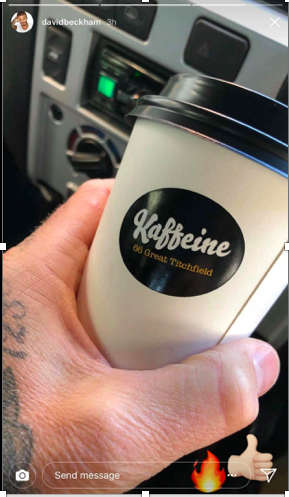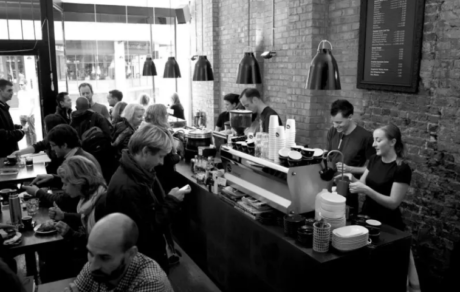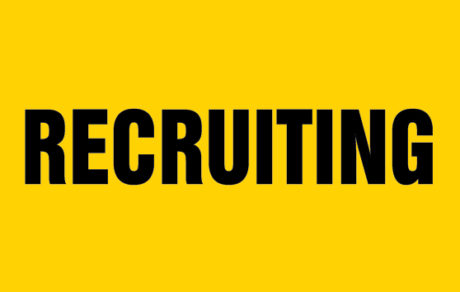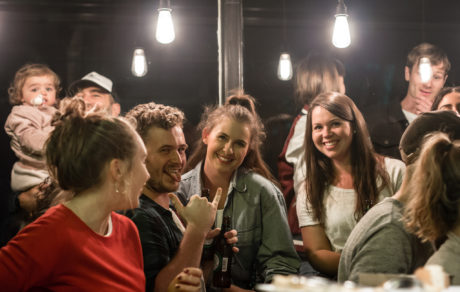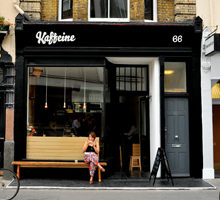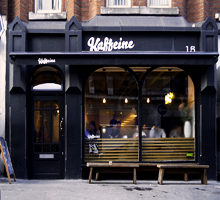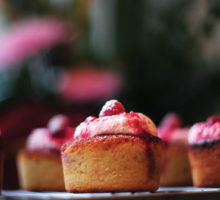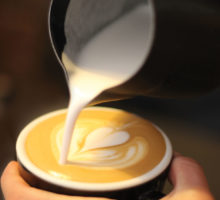Rave Culture and Specialty Coffee - A comparison
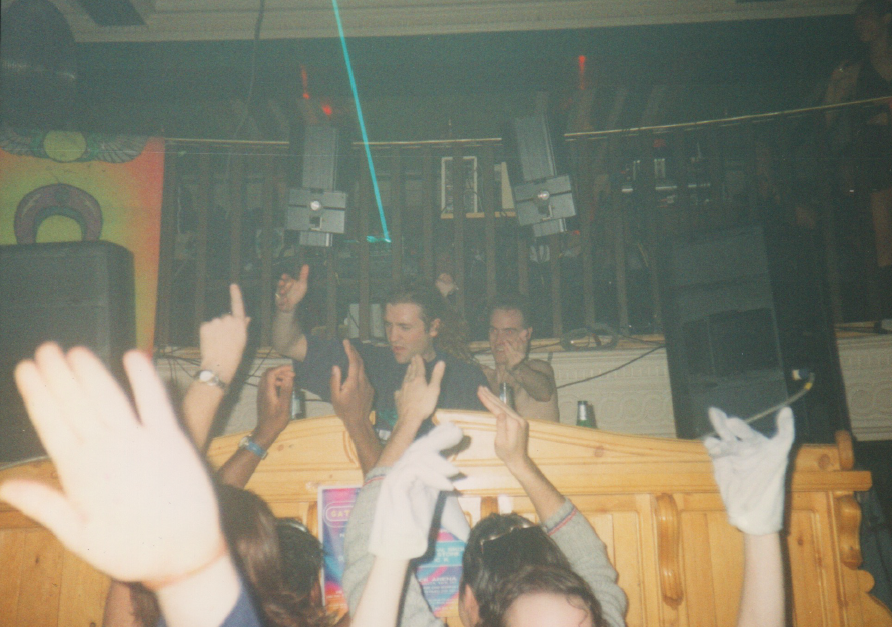
This is a direct copy from a speech I did at the Industra Wave Coffee Conference in Brno, Czech Republic back in 2018. I have tried to make the correlation between the starting points of rave culture and the starting points of specialty coffee in the UK. It was huge fun writing it, even more fun living it. It is in three parts for your reading pleasure.
Part One: Where we discover house music and proper underground raving in the 90’s
popular culture
noun
- culture based on the tastes of ordinary people rather than an educated elite
Firstly I want to tell you how excited I am to be here today, because in the time of being here I have already met so many wonderful people here in Brno and it feels just like the time in London when I was starting up, which is the topic of my talk today. There is passion, there is interest, there is desire, there are coffee places opening all over the country and it is fantastic. I can relate to all of this, because it relates to my story too.
So today I will tell the story of two separate cultural phenomenon that have occurred over the past 30 years. And at the end, I will be able to predict and answer the burning question. ‘What is the future of specialty coffee?’.
First, I want to tell of my experiences with house music and clubbing, and secondly, I will tell of my experience in specialty coffee.
You see, I grew up in the very outer eastern suburbs of Melbourne.
In 1987, when I was 18, I went to my first nightclub also in the very outer eastern suburbs of Melbourne.
Dancing was sort of fun, but mostly it was about hanging around the edges. I loved nightclubs though, and often went two to three times a week. I remember the closing song at our local club in the late 80’s was always Frank Sinatra’s ‘New York’ and we would put our arms around each other shoulders and kick our legs in the air.
By 21 I had moved out of home into central Melbourne and made new friends and had a new job and these friends were going out to proper clubs.
But these were proper raves, in warehouses and clubs and massive sheds with house music! I did not realise it at the time and I did not realise it until years later, this was the start of something very special.
House music itself can be traced back to Chicago in the mid 70’s when someone discovered that the four on the floor beat was simply a beautiful basis to create good dance music. A beat that almost replicated your heart beat. The first club to play this was called ‘Warehouse’ because it was in an old warehouse. House music was born. It was a wonderful social experience. No aggression. No fears. Just acceptance.
House music as we know it today really kicked off in the UK in the late 80’s. Four guys who were already into music including Paul Oakenfold and Danny Rampling went to Ibiza and went clubbing and yes, took ecstasy.
They came back to London and started their own clubs. Just a few blokes trying to recreate what they had experienced on the island.
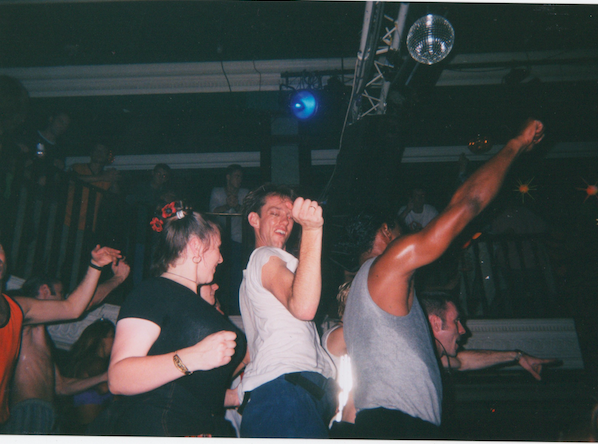
This is where the correlation between house music and coffee begins.
Danny and Paul did not have much money, but they had a passion, a desire, a dream, a ‘feeling’ that this was right and that it should be done, that Britain needed it. That if they built it, people would come’.
No-one really knew what this music was about, certainly not the mainstream, but once they experienced it, they knew it was going to be something special. It was underground, it was a renaissance, it was different. It was the right time.
These clubs were the starting point for rave culture in London and across the U.K., for a place that was cool, that had great music, a great vibe and cool staff, that you had to ‘know about’. If your friends went there and tried it, they would tell you, ‘you have to go, it’s amazing’.
On the first night of Danny’s club Shoom, 50 people turned up. 12 weeks later, 2000 people wanted to get in.
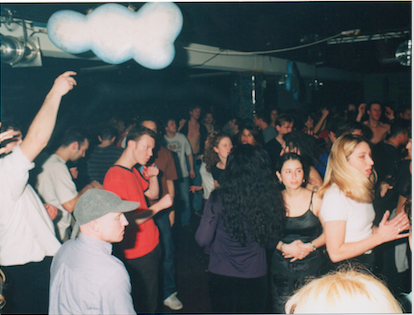 Sunnyside Up - Sunday daytime clubbing
Sunnyside Up - Sunday daytime clubbingOver the next few years, clubbing, house music and raving began to infiltrate the London music scene. As Paul and Danny’s and other clubs became more known, more people tried them out, as well as of course this new drug.
You can’t mention rave culture without referencing drugs. Ecstasy was massive and was everywhere. There is a story that over a million people each weekend were dropping pills. But I wonder how many people a weekend were/are drinking coffee?
At some stage in the early 90’s, the corporates got onto it, finally with BBC Radio One playing house music and employing DJ’s including the superstar Pete Tong. House music had crossed over to the mainstream.
But what was also important, hugely important, was what these clubs and this music was creating and encouraging. A unity, a community, an acceptance. No matter who you were, where you were from, what colour, what sexual preference, anything, you were accepted, you were a part of it.
In 1995, I moved to London and caught up with more friends, some of whom I knew from Melbourne, as well as meeting other new and interesting people and clubbing was taking off. Ministry of Sound had opened in 1991 and many other smaller and bigger clubs were running across London and the entire country.
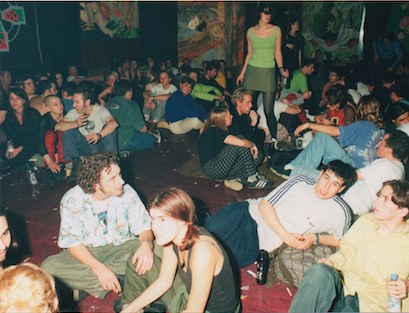 Back chill out room carnage
Back chill out room carnageLondon in the mid 90’s. What a time.
I was told by more friends that there were DJ’s playing music like we had went out to in Melbourne, it was amazing, and the clubs were incredible and there was this unbelievable scene! You had to get into it.
There were these places you had to go to, they were underground and secret and you felt like it was a discovery, that this was new, exciting, formative, an adventure.
There was music, there were drugs there were good times. No-one cared who you were, everyone accepted you. You were a part of something. You were not sure what, but you joined in anyway.
I remember first going to a place called Strawberry Sundae in November 1995, under railway arches in Vauxhall South London going ‘oh yes, this is what we are talking about!’
The best clubs we found were the smaller ones, located in the railway arches or disused warehouses, places you had to know to find. The bigger places were great, but were more commercial, more money orientated, not so ‘independent or raw’, because of course the big boys had started to move in.
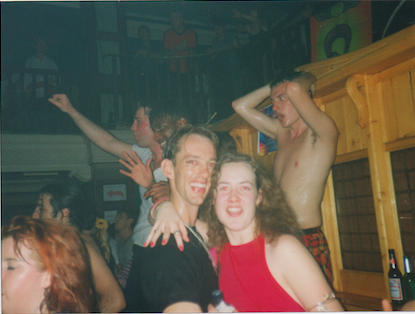 Yes, thats me in the black t-shirt
Yes, thats me in the black t-shirtThe commercial side of things moved quickly, companies, brands started to realise that this was a great way to make money and a great way to connect with youth. Those original clubs, created on shoe string budgets faded away and professionalism moved in.
Many clubs opened, then closed, ran by amateurs trying to make a quick buck. Others stayed true, were ran professionally and still continue today. But overall, these clubs and the people who ran them successfully were successful because they created an ‘experience’ for their customers.
It was not just about music, or drugs, it was the overall sensory experience that mattered. In other words, it matched the exact definition of Hospitality, ‘the warm and generous reception of guests, friends and strangers’.
In my experience, and with my friends, we found a place we could call home, a Sunday daytime club called Sunny Side Up. Also located in the railway arches of dodgy and disused South London, Sunnies was the place that accepted all of us.
For the next three years in London I spent nearly every weekend raving under the arches, or in old warehouses or in fields. It was our place, our escape. Charged up, happy, buzzing.
End of Part One – Part two is below where we discover World Barista Champions on market stalls and Ultimate Barista Fighting
In the 90’s, everyone became or wanted to become be a DJ. Idolised them. In 1997, decks outsold guitars for the first time ever. The music that had started in Chicago in the late 70’s then moved to Ibiza in the 80’s then to London in the 90’s was spreading. Commercial radio started playing it, huge festivals celebrated it, retail stores started playing it. Soon you found DJ’s in the Nike store on a Saturday afternoon, and you still find them today.
We all know where house music is now. It is worldwide, even across America and now known as EDM. Everywhere this four by four beat has infiltrated the daily lives of all people.
I have spent the past 30 years embracing and loving house music, the culture and the feeling. House music changed me as a person, it has helped me grow, love, learn and accept. I would put it out there today that it has changed the lives of millions of other people too.
In 1998, I arrived back in Melbourne from London and I noticed a change in café culture. Coffee shops were cool places to go, someone had found a way to make coffee taste better, music was better, decor, food, style. People were making an effort and importantly, everyone was accepted.
It was a wonderful social experience. No alcohol. In Sydney, in other cities of Australia and also in New Zealand this culture started to spread. Slowly, slowly, the coffee culture as we know it today started to integrate into the lives of all Australians. Remember this was from the mid 90’s onwards.
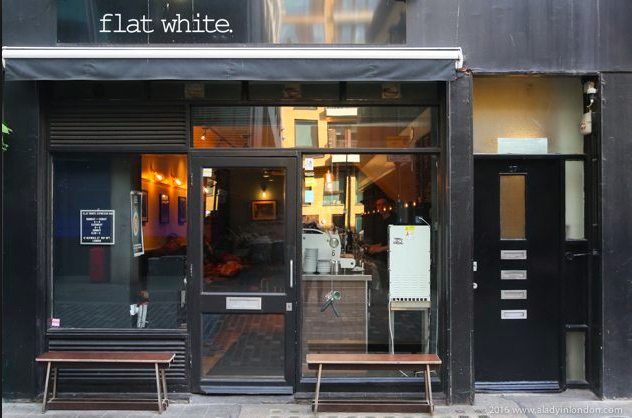 Flat White Berwick Street - Opened circa June 2005
Flat White Berwick Street - Opened circa June 2005In 2005 I returned to London with my now wife, who has an EU passport and of course we went looking for coffee.
But it was not until 2005 that an Australian man called Peter Hall who was often travelling to London for work decided he wanted to have a coffee shop in London like those back in Australia. He recruited a New Zealand fella called Cameron Maclure, and in June of 2005 together they opened a place called Flat White.
It is a small place, in Central London, in the middle of the sex area of Soho, a seedy, dodgy, area. For the first six months, hardly anyone came, then all of a sudden, word got out and soon enough, they were making up to 700 coffees a day out of a tiny little shop.
Flat White was the starting point for antipodean coffee culture in London, for a place that was cool, that had a vibe, that had great music and cool staff, they you had to ‘know about’. If you friends went there and tried it, they would tell you, ‘oh you have to go, it’s amazing’.
In 2006, two brothers and their sister from Sydney opened their own place in the back of a delicatessan in outer London. They too had a vison, a dream, a desire, to bring the culture they knew from Australia to the UK.
They started what is now known as Taylor Street Baristas and now have 10 stores in London, 1 in New York and have just signed a deal to work with Sodexo, one of the largest catering companies in the world to develop their coffee program.
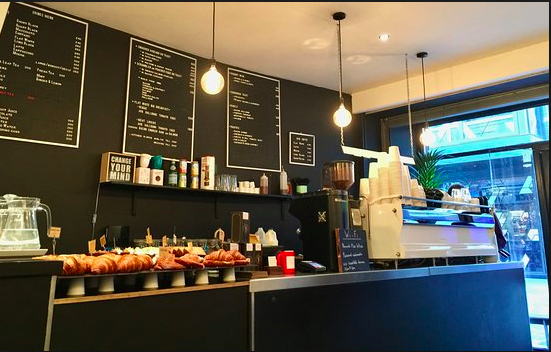 Flat White Berwick Street Interior
Flat White Berwick Street InteriorBoth Peter Hall and the Taylor Street crew had a passion, a desire, a dream, a ‘feeling’ that this was right and that it should be done, that Britain needed it.
I remember finding Flat White in June 2005 whilst walking around Soho, trying their coffee and going ‘oh yes, that is what we are talking about’.
My wife and I used to make pilgrimages to Flat White just to hang out there, to get our fix, then head off into London to see the sights, or go shopping. It was our place, our escape, every weekend we would visit. Charged up, happy, buzzing.
Over the next four years, from 2005 to 2009, coffee culture in London slowly bubbled. No-one really knew what this was all about, but those who tried it knew it was something special, something to be a part of. I recognised it and I also saw an opportunity to be a part of it, that this was going to be at least possible, or possibly huge!
In a massively pivotal moment in time, 2007, James Hoffmann won the World Barista Championships and Anettte Moldvaer won the World Cup Tasters.
In 2007/8, I started researching the potential of opening a coffee shop and came across this company called Square Mile Coffee roasters. Square Mile of course was started by James and Anette. Where did they open their roastery? In an old railway arch in deepest, darkest East London.
They were having espresso tasting nights. A monthly event, on a Wednesday night, in the deep dark areas of east London, under the railway arches. Anyone could come along and they did, usually about 30, 40 50 people. Friends of James and Anette, coffee shop owners, coffee geeks.
We would gather and taste espresso from other parts of the world, whilst a world coffee champion would pull shots and make us drink it.
Then they had what was known as the UBF’s, or the Ultimate Barista Fights. Smackdowns, cups tastings, anything goes. It was friendly, it was happy, it was inclusive, you felt you were a part of something.
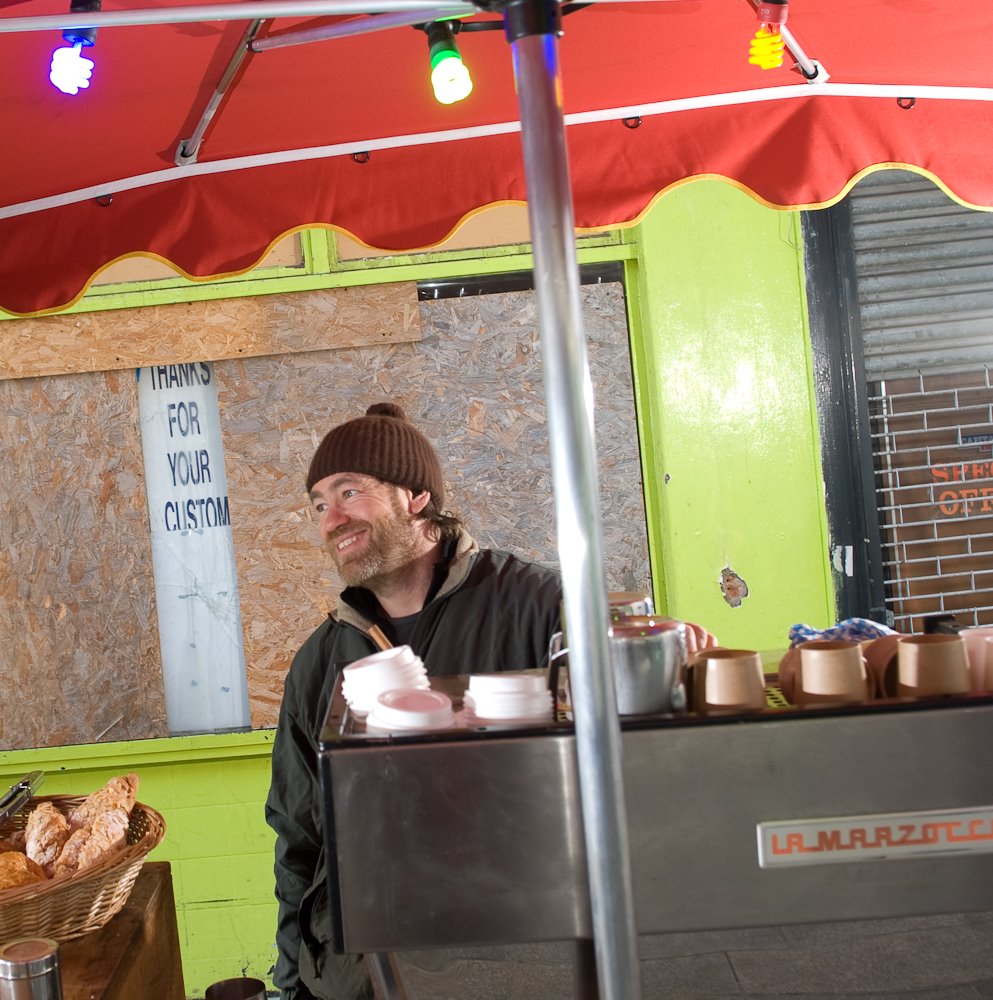 Gwilym Davies - A World Barista Champion on a market stall on Whitecross Street, East London
Gwilym Davies - A World Barista Champion on a market stall on Whitecross Street, East London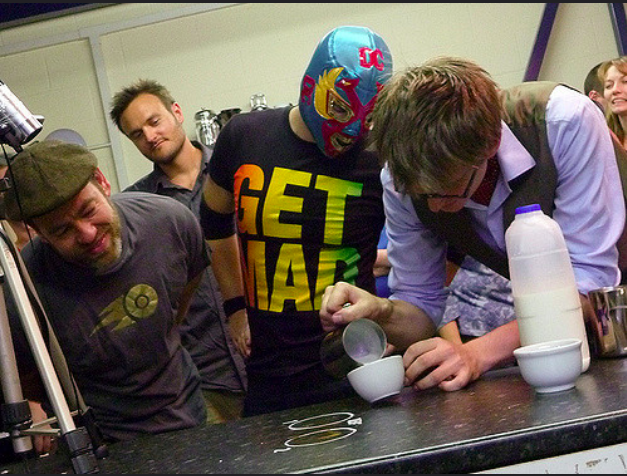 Ultimate Barista Fighting Championships
Ultimate Barista Fighting ChampionshipsAround the same time, a coffee shop called Taste of Bitter Love opened in Hackney road ran by two Australians, Felicity and Bill Tahtis. A tiny, tiny place, 4 seats.
Taste of Bitter Love. What a great name for a coffee shop, for a nightclub!
Around the corner from there on a Sunday morning, a guy called Gwilym was making coffee at a coffee cart on a flower market. He had formerly worked at Monmouth coffee and decided to go out on his own in search of making a better cup and bringing coffee to the people.
Sunday morning at Gwilyms cart were legendary. Queues of people lining up to get a coffee on a freezing Sunday morning, while baristas pulled shots, steam wands steamed and banter flowed. Other baristas or coffee shop owners would gather there, James Hoffman often got on the machine, pulling shots, doing a ‘guest spot’.
A world champion barista making your coffee in the back of a flower market on a Sunday morning off a coffee cart!
Taste of Bitter Love was just around the corner and those in the know went there as well. East London was rocking for coffee, it was the place to go for this new thing, this new phenomenon, something was happening, something was growing.
By late 2008 we had Flat White, Milk Bar, Taylor Street Baristas, Taste Of Bitter Love, Gwilyms Cart and then he started Prufrock in a clothes shop in east London. We had Dose, Lantana and Climpsons and Sons in an old market street in Hackney, Beas of Bloomsbury and Browns of Brockley, Nude as well as Fernandez and Wells. That was it, about 8 places.
But what was also important, hugely important, was what these coffee shops and this coffee was creating and encouraging. A unity, a community, an acceptance. No matter who you were, where you were from, what colour, what sexual preference, anything, you were there, you were a part of it.
There were these places you had to go to, they were underground and secret and you felt like it was a discovery, that this was new, exciting, formative, an adventure.
There was music, there were coffee, there were good times. No-one cared who you were, everyone accepted you. You were a part of something. You were not sure what, but you joined in anyway.
In another pivotal moment, April 2009, Gwilym Davies, the man from the coffee cart, backed and trained by Square Mile Coffee, won the World Barista Championship.
In July 2009, The Espresso Room opened and in August 2009, I opened Kaffeine. For about the next six months, us owners would meet up once a month for beers and a chat about the industry, how the shops were doing and how we were coping.
None of us had any money. None of us were corporate backed. But we all had a dream and a desire and a passion that we knew what we were doing was right, that ‘if we built it, people would come’.
Part two complete – Wait to you see who it is that confirms the future of specialty coffee in part three
Part Three – the final part
OMG the stories we have of those early days, the things we did wrong, the mistakes we made, the way we set things up. So very amateur.
Here’s an example. In the U.K. we have a score system for food safety when you get an inspection. Five stars is amazing. Zero stars they close you down. Our first inspection at Kaffeine we got 1 star. We had no idea.
Of course, we put the Flat White on the menu. In Australia it is not at all popular. Back home it is all about the latte. But here in the UK it is our most popular drink ever since we opened. Always at least 30% of our espresso drinks sales. I credit this to that tiny store in SOHO. If it was not for Flat White the store, flat white the drink would not be what it is today.
In February 2010, I was asked to do a speech at the UK Coffee Leaders summit in London to about 400 people from the industry. Not the specialty industry, there was only about six of us!
No, this was the industry of the corporate world. Marks and Spencers, Costa, Nero, Starbucks, McDonalds, BP. You name it, they were there. And here I was, a lone Australian with one shop, open only six months, telling the multi-millionaires my story. I was voted the best speech of the conference.
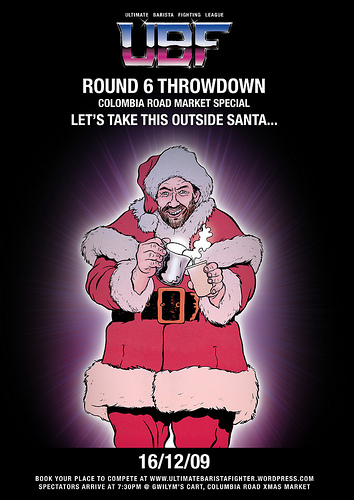 Ultimate Barista Fighting Champions - Let's take it outside Santa
Ultimate Barista Fighting Champions - Let's take it outside SantaBut around 2011, Costa Coffee, one of the world’s largest coffee chains, launched the new drink. The flat white. It was everywhere. Advertising in your face like you would not believe. Customers would come into our shop and ask ‘what is this Flat White?”. Coffee had made it to the mainstream, just as house music was played on Radio One to the mainstream in the early 90’s. Now everyone was into it.
From 2010 to 2013, the coffee industry in London boomed. Everyone was getting into it, everyone was going out to coffee shops, talking about coffee, making coffee. At our peak in 2012/2103, we were making about 4000 coffees a week. In our second year, our revenues grew 27%, the year after they grew 7%.
Coffee and baristas now can be found anywhere and everywhere. The corporate coffee companies started opening too. I remember Ozone coming to London. Oh hello. This may be good. It means that someone believes there is a future for coffee in London.
Then St Ali opened. An off shoot of the St Ali in Melbourne, opened by an English guy who had huge financial backing had decided to open a St Ali over here. The association did not last long, but he soon changed the name to Workshop coffee and now has six stores and a roastery.
Now we have Grind, Department of Coffee and Social Affairs, Notes, Workshop, Origin, Ozone amongst others all with large financial backing and huge dreams. We also have the smaller players, the new openings. Everyone wants to have a coffee shop or be a barista. So many job applicants come to me and say, ‘I want to have my own space one day’, just like they used to say ‘I want to be a DJ’.
2020 update: I have noted here several companies have ‘large financial backing’ but since publishing this story, I was contacted by Tom the owner of Origin who quite righty corrected me on his backing. Tom started Origin with his own money 16 years ago and has grown it organically. Of course DOCASA and Notes also started with small budgets, but had financial backing later in their growth period. I apologise for any confusion or misrepresentation over this part of the history.
In a recent BBC series on house music, it was said that the time when house music really crossed over to the mainstream into America and around the world was with the collaboration of David Guetta and Will I Am with ‘I gotta feeling’. Of course, we all know it started back in the late 70’s in Chicago.
Has specialty coffee crossed that mainstream, that threshold as yet? Let me tell another story.
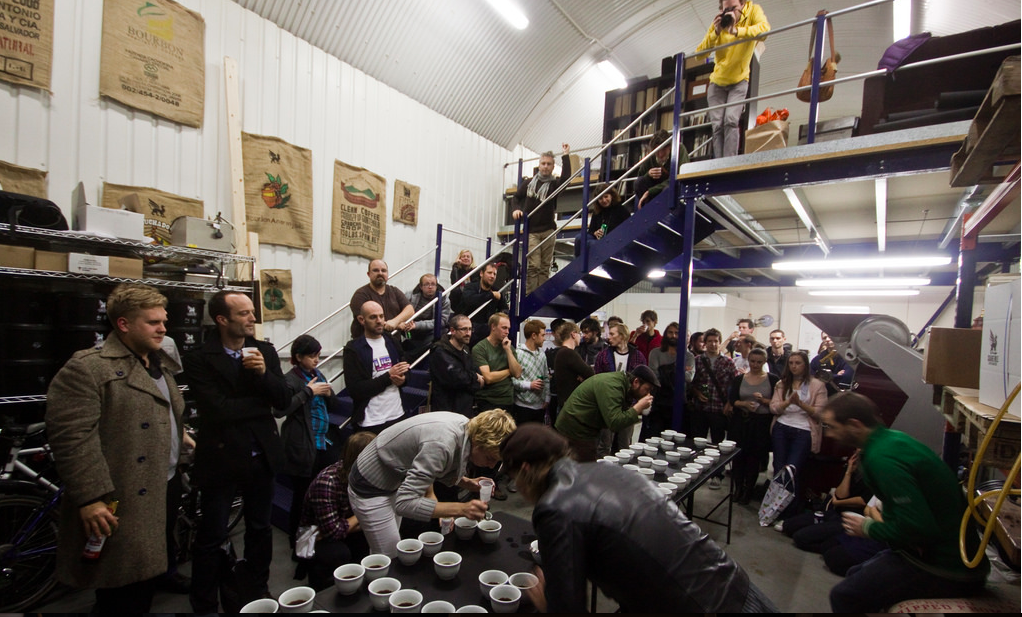 Square Mile Cup Tasting Nights in a railway arch in east London.
Square Mile Cup Tasting Nights in a railway arch in east London.In May this year (2018), we had problems at our original store with minor electric shocks on our cash register. You touch the grinder and the till at the same time and you get a shock. So I did some research and found it was probably our power boards that needed replacing. It was 9 am on a Friday and I was properly underneath the counter changing all the plugs, swapping out power boards. Anyone who own a coffee shop knows how many power points you need under the counter. Masses.
I had turned off the wifi for the till system, the credit card machine had stopped working, it was quickly turning into a DIY disaster. The shop suddenly became busy, people were everywhere. And then suddenly one of our very long term staff members, our Assistant Manager Josie who had been with us since 2013 leaned underneath and whispered to me. ‘Peter…… David Beckham is here’.
For those who do not know, I am 193 cm tall. So I extricated myself from under the counter, stood up and there he was, right front of me. One of the world’s most famous people in my little shop. He got his coffee, I introduced myself and said thank you and off he went.
Five minutes later he posted our cup with his hand and the fire symbol on his Instagram page to over 50,000,000 people.
He is now a regular customer. He walks in and customers look up and go….’is that?’ I overheard two the other day saying ‘well we know we are in the right place if Beckham comes here…’The best was when we had a barista on his first day and he came in. Not a bad way to start a job, making coffee for Beckham.
So, you see I think about this a lot. The starting points and the journey of house music, as well as the starting points and the journey of coffee.
In both those journeys, I did not realise until afterwards how special it was.
In 1995 when I really started going clubbing, I did not know what was happening, we just joined in and damn we had a good time!
When we opened Kaffeine in 2009 and were getting slammed in 2011 and 2012, I did not realise what was happening, it was just happening and we just went with it and damn we had a good time!
I certainly realise it now and I am very, very grateful to say I have twice been a part of it.
These journeys can now allow us to look to the future. If people like David Beckham are posting fire symbols next to our coffee on his Instagram, how many other people out there are going to start asking ‘what is this stuff and where do you get it?’.
If David Beckham comes to the Czech Republic, maybe he will look for specialty coffee and come to your store.
Is the future bright for specialty coffee, or quite simply, coffee that tastes amazing and for places that offer that overall balanced sensory experience for their customers? That genuine hospitality?
I believe that if you run a good commercial business, if you look after people and if you make people happy then I like to think that today, I have proven it will be.
Thank you for reading this, I hope you enjoyed it. An update, Beckham has not come for ages but you never know, we heard he lost his driving licence so maybe thats why.
